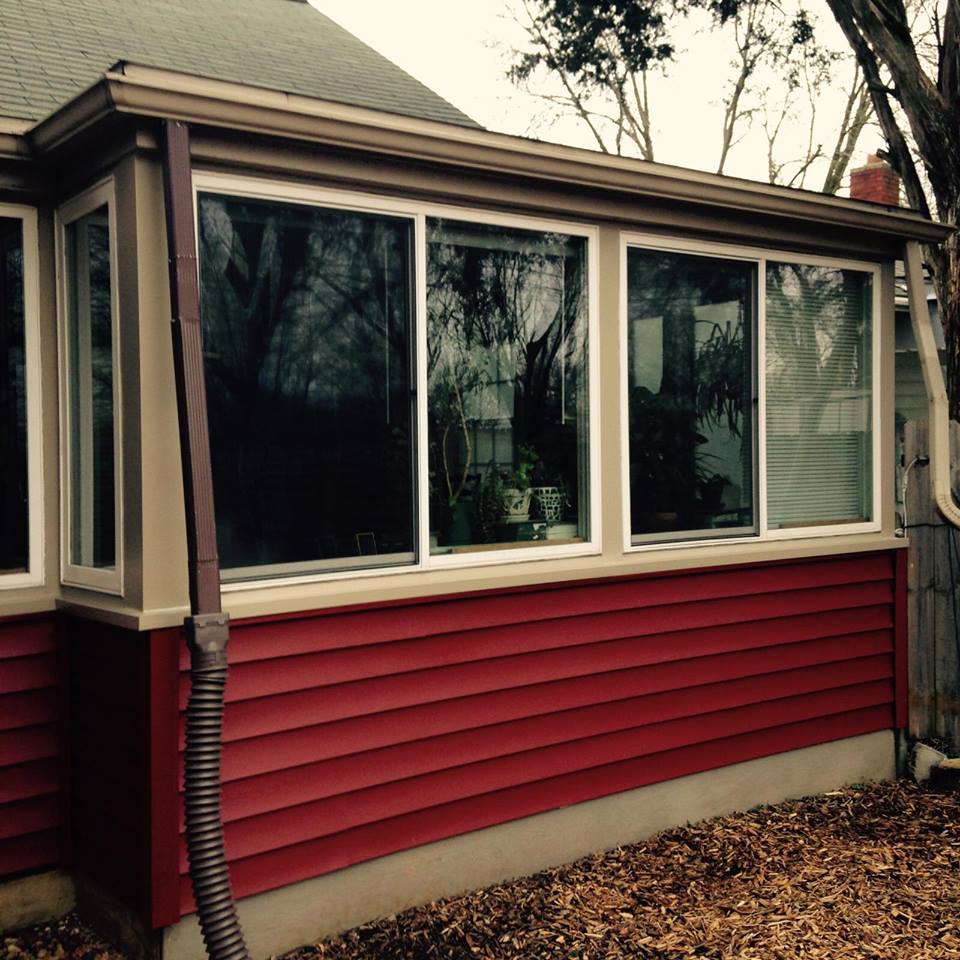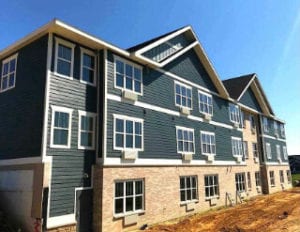The cost to replace windows generally ranges from $10,800 to $31,363 for an average-sized home. This includes an estimated average of $21,081 for homes with 18 windows, though installation can add an extra 20-30% to total expenses. Each window unit may cost between $322 and $492, depending on the type and materials used. Choices such as vinyl or energy-efficient windows can also influence pricing and potential long-term savings. Understanding these factors will help you make informed decisions about your window replacement project and uncover potential cost-saving strategies.
Factors That Affect Window Replacement Costs
Several key factors influence the costs associated with window replacement, starting with the size of the home and the number of windows required.
Furthermore, the type and style of windows chosen, along with the materials used, greatly impact pricing.
Understanding these variables is essential for homeowners to make informed decisions regarding their window replacement projects.
Size of the Home and Number of Windows
The size of the home and the number of windows present are critical factors that frequently influence the overall cost of window replacement.
Larger homes typically require more windows, which considerably increases the total cost of the project. On average, a home contains around 18 windows, and replacing each can add anywhere from $500 to $1,000 to the overall expenses.
Furthermore, larger windows may incur higher replacement costs due to increased labor and materials, raising installation expenses by 20-30%.
However, homeowners may benefit from lower costs per window if multiple windows are replaced simultaneously, thanks to bulk pricing discounts.
Understanding these factors is essential for accurately estimating the total cost of window replacement.
Type and Style of Windows
Different types and styles of windows markedly influence the overall cost of replacement, with prices varying based on design complexity and material choices.
The average cost of window replacement ranges from $322.67 to $492.87 per unit. Options like arched windows cost between $273 and $1,675, while double-hung windows range from $400 to $2,000.
Bay and bow windows generally increase the cost to replace windows, ranging from $500 to $2,200 due to their size and design features.
Specialty window styles, including custom-built options and skylights, can also drive up costs considerably.
As a result, understanding the various window styles and their associated pricing is vital when budgeting for replacement windows.
Material Choices and Their Costs
Choosing the right window material is crucial, as it greatly influences both the cost and performance of window replacements.
The cost of materials varies considerably; for instance, vinyl windows typically range from $300 to $1,700, making them a popular choice due to their affordability and low maintenance.
Wood windows are generally more expensive, costing between $300 and $2,000, while aluminum options range from $400 to $900, often lacking in energy efficiency.
Composite and fiberglass windows offer durability and energy efficiency, priced between $400 to $1,900 and $300 to $1,900, respectively.
Selecting the appropriate materials not only affects initial expenses but also impacts long-term energy efficiency and maintenance needs, making informed choices crucial for homeowners.
Average Costs for Replacing Different Types of Windows
When considering window replacement, understanding the average costs associated with different types is essential for homeowners.
Single-hung and double-hung windows typically offer similar pricing structures, while bay and bow windows command higher expenses due to their intricate designs.
Furthermore, sliding and casement windows present varied price ranges based on features and size, further influencing the overall replacement budget.
Single-Hung vs. Double-Hung Windows
Evaluating the costs associated with single-hung and double-hung windows reveals significant differences that can influence homeowners’ decisions during replacement projects.
Single-hung windows typically range from $300 to $1,000 per window, making them a more budget-friendly option. In contrast, double-hung windows, which offer improved ventilation and ease of cleaning, generally cost between $400 and $2,000 per window.
Installation costs for both window types average between $36 and $153 per window, depending on local labor rates and installation complexity.
Homeowners may also consider energy-efficient windows, which can incur additional costs initially but lead to long-term savings on energy bills.
Ultimately, the choice between single-hung and double-hung windows hinges on budget, functionality, and energy efficiency preferences.
Bay and Bow Windows
Bay and bow windows present distinct options for homeowners looking to enhance both the aesthetic appeal and natural light in their spaces, with replacement costs reflecting their unique designs and installation requirements.
Bay windows typically cost between $500 and $2,200 to replace, influenced by size and complexity. In contrast, bow windows, with their curved structures, usually range from $1,000 to $3,500, making them more expensive due to extra materials and installation demands.
Both types can markedly improve natural lighting while providing visual interest, justifying their higher costs.
Furthermore, opting for energy-efficient bay and bow windows may incur increased upfront costs but can yield substantial savings on energy bills over time, making them a worthwhile investment.
Sliding and Casement Windows
Replacing sliding and casement windows presents a range of costs, with sliding windows averaging between $300 and $1,700 per unit, while casement windows typically fall between $400 and $2,400. These costs depend on various factors such as size, material, and installation complexity.
For a window replacement project, installation costs generally add a further $36 to $153 per window, influenced by the complexity of the installation and the experience of the installer.
Homeowners may also consider energy-efficient features, such as low-e glass and argon gas, which can increase initial costs but provide long-term savings on energy bills.
Furthermore, opting to replace multiple windows may yield bulk pricing discounts, further enhancing value while managing overall cost ranges.
Energy-Efficient Windows: Are They Worth the Investment?
Investing in energy-efficient windows can result in higher upfront costs compared to standard options, but the potential for long-term savings on energy bills is significant.
Homeowners can save an average of 12% on their energy expenses, with some upgrades offering annual savings of up to $583.
Furthermore, various tax credits and rebates may further enhance the financial viability of these energy-efficient upgrades.
Costs of Energy-Efficient Windows
When considering the costs associated with energy-efficient windows, homeowners must weigh the initial investment against the potential long-term savings on energy bills and enhanced comfort.
The average cost for window installations of energy-efficient windows ranges from $300 to $2,500 per unit, influenced by materials and window types.
While the cost of replacing standard windows can be lower, opting for energy-efficient options may lead to greater savings, with annual energy bill reductions between $101 to $583.
Furthermore, upgrading to double-pane or Energy Star certified windows can considerably decrease energy loss by up to 50%.
Although the upfront costs are higher, these investments can ultimately help homeowners save money over time while improving home efficiency.
Long-Term Savings on Energy Bills
Long-term savings on energy bills make energy-efficient windows a compelling choice for homeowners seeking both immediate comfort and future financial benefits.
By upgrading to energy-efficient window replacements, homeowners can save an average of 12% on their energy bills, which translates into annual savings ranging from $101 to $583.
Although the initial investment in energy-efficient windows may be higher, these costs are often offset by considerable savings in the long run.
Installing features like low-e glass can reduce energy loss by up to 50%, greatly lowering heating and cooling expenses.
Furthermore, homeowners may qualify for rebates and tax credits, enhancing the financial appeal of this investment while potentially increasing the home’s resale value.
Installation Costs and Additional Expenses
When considering window replacement, installation costs represent a significant portion of the overall expense.
Homeowners must weigh the advantages of hiring a professional installer against potential savings from a DIY approach.
Understanding the implications of each option, including warranty concerns and compliance with building codes, is essential for making an informed decision.
Professional Installation Costs
Considering the complexity involved, professional installation costs for windows can vary greatly, typically falling between $36 and $153 per unit based on the installer’s experience and the specific requirements of the project.
Labor to install windows often parallels window pricing, with total estimates for installation labor ranging from $322.67 to $492.87 per window. More intricate installations, such as full-frame replacements, may double the installation costs compared to simpler retrofit options, which can save up to 20%.
Furthermore, unique project conditions, such as window size and type, greatly influence final expenses. Homeowners should also account for extra costs, including debris disposal and potential repairs to surrounding surfaces, which may not be included in basic labor estimates when planning to replace your windows.
DIY vs. Hiring a Professional
Deciding between DIY installation and hiring a professional can greatly impact both the cost and the quality of the window replacement project.
While DIY installation can considerably reduce labor costs—typically saving up to $153 per window—it carries risks such as voiding warranties and potential misalignment of window frames.
Conversely, professional installation guarantees proper fitting and adherence to local building codes, though it may increase installation costs. Full-frame installations can further raise the overall cost, sometimes doubling expenses.
Additionally, hiring professionals allows homeowners to benefit from their expertise, potentially avoiding costly mistakes.
Ultimately, the decision should factor in both financial constraints and the desired quality of the installation.
How Much Does It Cost to Replace Windows for Your Whole House?
When considering the cost of replacing windows for your entire home, various factors such as home size and window quantity greatly influence the total expense.
Typically, replacing all windows at once can lead to reduced costs per unit due to bulk purchasing and simplified installation.
Understanding these variables is essential for homeowners aiming to budget effectively for this investment.
Cost for Different Home Sizes
The cost of replacing windows varies considerably based on the size of the home, with average expenses ranging from approximately $10,800 to $31,363 for full window replacement projects.
For an average-sized home featuring 18 windows, homeowners typically spend around $21,081.
Key factors influencing the total cost include the number of windows and the chosen frame material, whether vinyl, wood, or aluminum.
Installation costs can also add an additional 20-30% to the overall expenses.
Larger homes, requiring more windows, often experience increased costs due to both quantity and installation complexity.
Homeowners should consider these variables when budgeting for window replacement to guarantee a thorough and informed investment.
Is It Cheaper to Replace All Windows at Once?
Replacing all windows at once can lead to significant cost savings, as homeowners often benefit from bulk purchasing discounts and reduced labor expenses.
Typically, replacing multiple windows together can save 10% to 20% compared to individual replacements. The average costs of window replacement for a whole house range from $5,855 to $29,275, influenced by the type and number of windows selected. Utilizing a cost calculator can help homeowners gauge expenses effectively.
Moreover, opting for energy-efficient windows during a whole-house replacement not only enhances comfort but can lead to annual savings of $101 to $583 on energy bills.
Consequently, consolidating window replacements can be a wise financial decision, providing immediate and long-term benefits.
Tips to Save Money on Window Replacement
Exploring various strategies can lead to considerable savings on window replacement costs.
To lower the cost per replacement window, consider ordering multiple units at once, as this often qualifies for bulk purchasing discounts. Opting for simpler window styles and affordable options, such as vinyl materials, can greatly reduce expenses.
Furthermore, energy-efficient windows may qualify for rebates and tax credits, providing further financial relief.
It’s essential to obtain multiple quotes from contractors to guarantee competitive pricing, with in-person estimates yielding more accuracy.
Finally, scheduling replacements during off-peak seasons, like late fall or winter, can lead to lower labor costs and better contractor availability.
Understanding how much it costs to replace windows can empower homeowners to make informed decisions.




